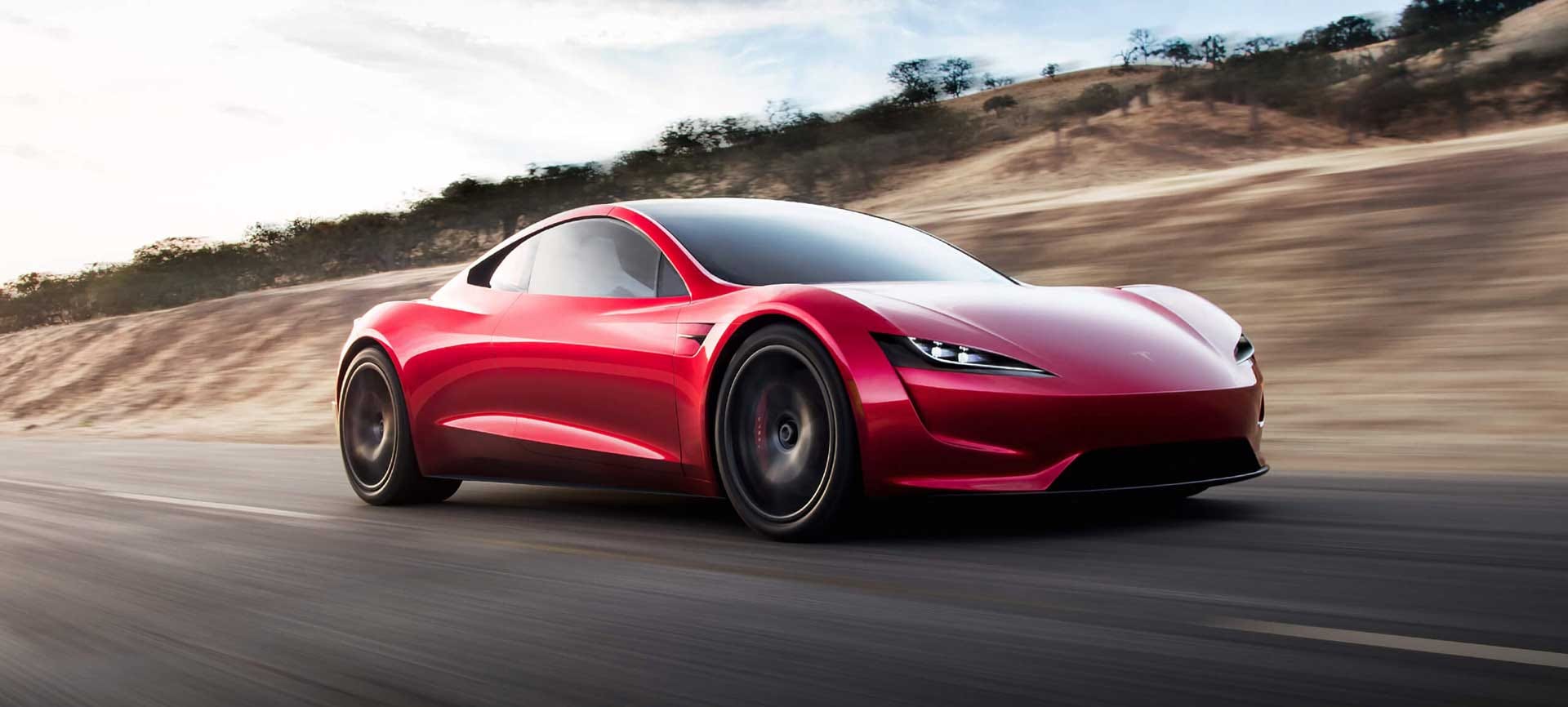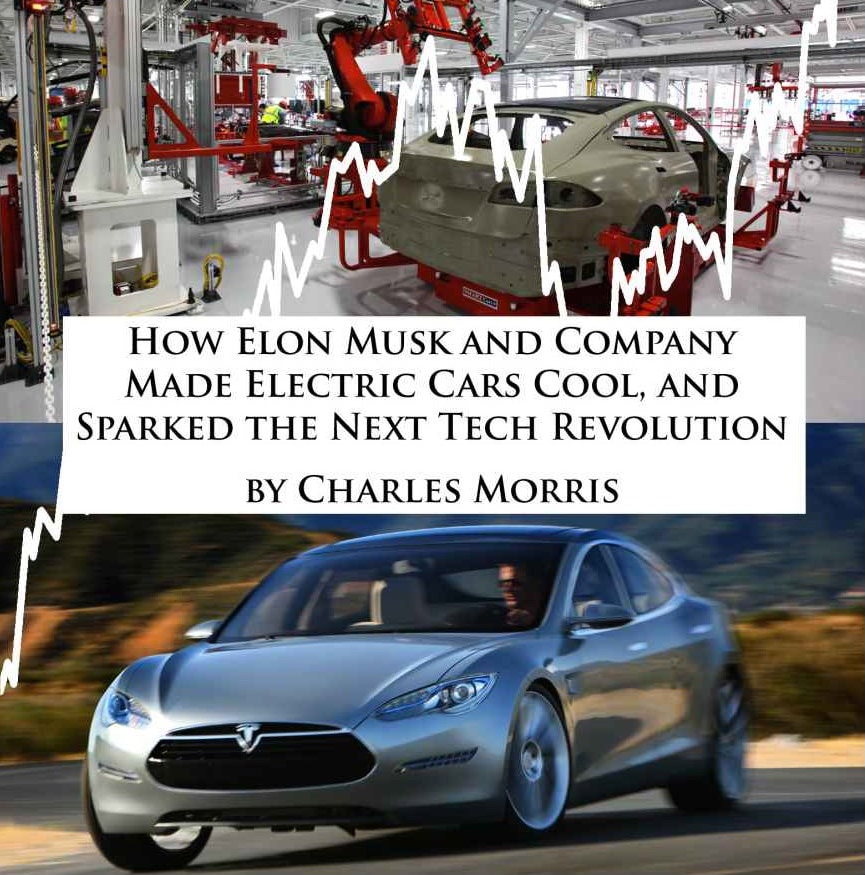
Introduction
With great pleasure, we will explore the intriguing topic related to Tesla: The Company That’s Making Electric Vehicles the New Normal. Let’s weave interesting information and offer fresh perspectives to the readers.
Table of Content
- 1 Introduction
- 2 The Electrifying Rise of Tesla
- 2.1 The Tesla Effect: Redefining Luxury and Performance
- 2.1.1 Beyond the Car: The Tesla Ecosystem
- 2.1.1.1 The Power of Branding and Marketing
- 2.1.1.1.1 Overcoming Challenges: The Road to Global Domination
- 2.2 The Future of Electric Vehicles: Tesla’s Vision
- 2.2.2 The Impact on the Environment
- 2.2.2.2 The Economic Impact
- 2.2.2.2.2 Technological Advancements: Autopilot and Beyond
- 2.3 Challenges and Criticisms
- 2.3.3 Counterarguments and Alternative Perspectives
- 2.3.3.3 The Future of Tesla: A Look Ahead
- 3 Conclusion
- 4 FAQs
- 5 Closure
Tesla: The Company That’s Making Electric Vehicles the New Normal
The Electrifying Rise of Tesla
Remember when electric cars were seen as quirky, underpowered golf carts for the environmentally conscious elite? Those days are long gone. Tesla, the brainchild of Elon Musk, hasn’t just disrupted the automotive industry; it’s completely rewritten the rules. From its humble beginnings as a small startup with a big dream, Tesla has become a global powerhouse, transforming the perception of electric vehicles (EVs) and pushing the boundaries of what’s possible. I remember seeing my first Tesla Roadster – a sleek, futuristic machine that looked like it belonged on a movie set. It was a revelation, a glimpse into a future where driving was both exhilarating and sustainable. That image, that feeling, is what catapulted Tesla into the public consciousness and continues to fuel its remarkable growth. It’s not just about the cars themselves; it’s about the whole experience, the technology, the brand, the vision. And that’s why Tesla’s success isn’t just a business story; it’s a cultural phenomenon.
The Tesla Effect: Redefining Luxury and Performance
Tesla’s success hasn’t been accidental. It’s a carefully orchestrated symphony of innovation, marketing genius, and a relentless pursuit of excellence. The company cleverly positioned its vehicles not as eco-friendly compromises, but as high-performance luxury machines that just happen to be electric. This strategy flipped the script on the prevailing narrative surrounding EVs, attracting a customer base far beyond the niche market of environmentally conscious buyers. Think about it: previously, electric cars were often associated with limited range, slow acceleration, and a lack of style. Tesla shattered these misconceptions, delivering vehicles that boasted impressive performance, cutting-edge technology, and a sleek, futuristic design that turned heads. The Model S, for instance, redefined the luxury sedan market, offering exhilarating acceleration and a range that made long journeys feasible. This wasn’t just about building a car; it was about building a lifestyle.
Beyond the Car: The Tesla Ecosystem
Tesla’s influence extends far beyond its vehicles. The company has built a comprehensive ecosystem around its products, creating a seamless and integrated user experience. The Supercharger network, for example, addresses one of the biggest concerns about EV ownership: range anxiety. By providing a convenient and readily available fast-charging infrastructure, Tesla has made long-distance travel in an EV a realistic proposition. This strategic move isn’t just about charging cars; it’s about creating a sense of community and building brand loyalty. Furthermore, Tesla’s software updates, delivered over-the-air, continuously improve the performance and functionality of its vehicles, adding features and enhancing the driving experience long after purchase. This constant evolution keeps Tesla vehicles feeling fresh and modern, unlike traditional cars that often feel dated after a few years.
The Power of Branding and Marketing
Tesla’s branding is nothing short of masterful. It’s not just about selling cars; it’s about selling a vision of the future. Elon Musk, the face of the company, is a master storyteller, cultivating a cult-like following that eagerly anticipates each new product launch and technological advancement. The company’s marketing strategy is less about traditional advertising and more about creating buzz and generating excitement through social media, product demonstrations, and strategic partnerships. This approach resonates particularly well with younger generations who are increasingly drawn to brands that align with their values and aspirations. The carefully crafted image of Tesla as a revolutionary technology company, rather than just a car manufacturer, has been crucial to its success.
Overcoming Challenges: The Road to Global Domination
Despite its remarkable success, Tesla hasn’t been without its challenges. Production bottlenecks, quality control issues, and fierce competition from established automakers have all tested the company’s resilience. However, Tesla has consistently demonstrated its ability to adapt and overcome obstacles, leveraging its innovative spirit and technological prowess to maintain its competitive edge. The company’s commitment to vertical integration – controlling various aspects of its supply chain – has allowed it to maintain greater control over its production process and mitigate risks associated with external dependencies. This strategy, while challenging, has proven to be a key factor in Tesla’s ability to navigate industry complexities and maintain its leading position.
The Future of Electric Vehicles: Tesla’s Vision
Tesla’s impact on the automotive industry is undeniable. It has not only popularized electric vehicles but has also accelerated the pace of innovation in the sector. Other automakers are scrambling to catch up, investing heavily in their own EV development programs. The competition is fierce, but Tesla’s first-mover advantage, brand recognition, and technological leadership give it a significant edge. The company’s ambitious plans for expansion into new markets, the development of autonomous driving technology, and its foray into energy storage solutions further solidify its position as a key player in the future of sustainable transportation and energy.
The Impact on the Environment
Tesla’s contribution to environmental sustainability is substantial. By producing and selling electric vehicles, the company is actively reducing carbon emissions from the transportation sector, a major contributor to climate change. The widespread adoption of EVs, driven in large part by Tesla’s success, is a significant step towards a greener future. However, the environmental impact of EV production, including battery manufacturing and resource extraction, needs to be carefully considered and addressed to ensure the long-term sustainability of this technology. Tesla, along with other players in the EV industry, is actively working on improving the environmental footprint of its manufacturing processes and exploring sustainable battery technologies.
The Economic Impact

Tesla’s success has had a significant economic impact, creating thousands of jobs and driving innovation in related industries. The company’s investments in research and development have spurred advancements in battery technology, electric motor design, and autonomous driving systems, benefiting the broader economy. However, the rapid growth of the EV industry also presents challenges, including the need for skilled labor and the potential disruption of traditional automotive manufacturing jobs. Addressing these challenges requires careful planning and collaboration between governments, industry, and educational institutions.
Technological Advancements: Autopilot and Beyond
Tesla’s commitment to technological innovation is evident in its Autopilot system, a semi-autonomous driving feature that is constantly evolving. While still under development, Autopilot represents a significant step towards fully autonomous vehicles, a technology that has the potential to revolutionize transportation and improve road safety. However, the ethical and safety implications of autonomous vehicles require careful consideration and robust regulatory frameworks. Tesla’s ongoing efforts in this area are pushing the boundaries of what’s possible, but also highlight the complexities and challenges associated with this transformative technology. It’s a double-edged sword – incredible potential, but serious ethical and safety concerns that need addressing.
Challenges and Criticisms
Despite its success, Tesla faces numerous challenges and criticisms. Production delays, quality control issues, and Elon Musk’s sometimes controversial public statements have all drawn scrutiny. The company’s aggressive expansion plans and ambitious goals have also raised concerns about its ability to meet its targets consistently. Critics also point to the high cost of Tesla vehicles, making them inaccessible to many consumers. Addressing these concerns is crucial for Tesla’s long-term success and maintaining its reputation as a leading innovator in the EV industry. The company needs to balance its ambition with realistic expectations and a commitment to consistent quality and customer satisfaction.
Counterarguments and Alternative Perspectives
Some argue that Tesla’s success is overhyped and that the company’s market valuation is unsustainable. Others point to the environmental impact of battery production and the ethical implications of autonomous driving technology as significant drawbacks. Furthermore, the dominance of Tesla in the EV market raises concerns about monopolies and the potential for stifling innovation. These are valid concerns that require careful consideration. A balanced perspective requires acknowledging both the positive and negative aspects of Tesla’s impact on the automotive industry and the broader economy.
The Future of Tesla: A Look Ahead
Tesla’s future trajectory remains uncertain, but its impact on the automotive industry is already undeniable. The company’s success has spurred a wave of investment and innovation in the EV sector, accelerating the transition towards sustainable transportation. However, the company’s continued success will depend on its ability to address the challenges it faces, maintain its technological leadership, and navigate the complexities of a rapidly evolving market. The next chapter in Tesla’s story will be defined by its capacity for innovation, its commitment to sustainability, and its ability to adapt to changing consumer preferences and industry dynamics. It’s a race against time, against competitors, and against the ever-changing landscape of technology.
Conclusion
Tesla’s story is a testament to the power of innovation, vision, and relentless execution. The company has not only revolutionized the automotive industry but has also reshaped our perception of electric vehicles, transforming them from niche products into desirable, high-performance machines. Tesla’s success, however, is not without its challenges. The company faces fierce competition, production hurdles, and ethical considerations surrounding its advanced technologies. Navigating these complexities will be crucial for Tesla’s continued growth and its ability to maintain its position as a leader in the rapidly evolving EV market. The future of transportation, and perhaps even energy, is inextricably linked to Tesla’s ongoing journey. Will they continue to lead the charge? Only time will tell.
The impact of Tesla extends far beyond the realm of automobiles. It represents a paradigm shift in how we think about transportation, sustainability, and technology. Its influence on other automakers, its contribution to environmental consciousness, and its advancement of autonomous driving technology are all significant milestones in human progress. The company’s future trajectory will be a fascinating case study in innovation, disruption, and the ever-evolving relationship between technology and society. We’re witnessing history in the making, and the ride is just beginning.
FAQs
- What makes Tesla’s electric vehicles different from others? Tesla focuses on performance, technology integration (like Autopilot), and a comprehensive ecosystem (Supercharger network, software updates) that sets it apart from traditional automakers’ EVs.
- What are the environmental implications of Tesla’s operations? While Tesla’s EVs reduce emissions, the environmental impact of battery production and resource extraction remains a concern; Tesla is actively working on sustainable solutions.
- How does Tesla’s Autopilot technology work? Autopilot uses a combination of cameras, radar, and ultrasonic sensors to assist with driving tasks, but it’s not fully autonomous and requires driver supervision.
- What are the biggest challenges Tesla faces? Challenges include production scaling, maintaining quality control, competition from established automakers, and addressing concerns about the ethical and safety implications of its advanced technologies.
- Is Tesla’s stock price sustainable? Tesla’s high valuation reflects investor confidence in its future, but its sustainability depends on its continued innovation, market share growth, and ability to address its challenges effectively.

[P32]
[P33]
[P34]
Closure
In conclusion, we hope this article has provided valuable insights into Tesla: The Company That’s Making Electric Vehicles the New Normal. We appreciate your attention to our article. See you in our next article!